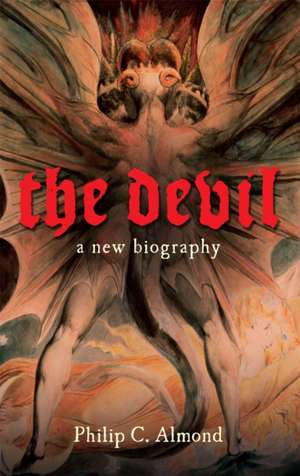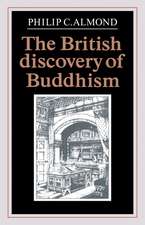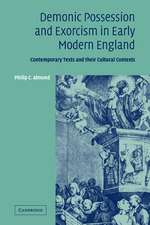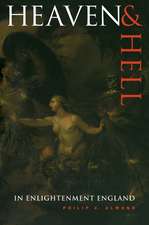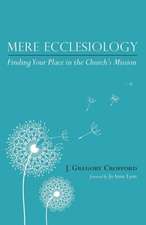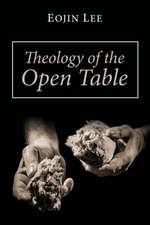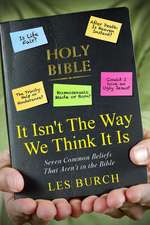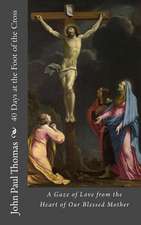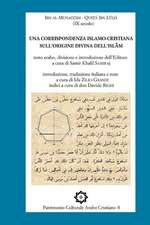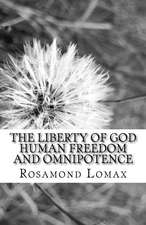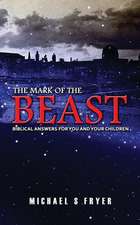The Devil – A New Biography
Autor Philip C. Almonden Limba Engleză Hardback – 10 sep 2014
Lucifer, Mephistopheles, Beelzebub; Ha-Satan or the Adversary; Iblis or Shaitan: no matter what name he travels under, the Devil has throughout the ages and across civilizations been a compelling and charismatic presence. In Christianity, Judaism, and Islam, the supposed reign of God has long been challenged by the fiery malice of his opponent, as contending forces of good and evil have between them weighed human souls in the balance.
In The Devil, Philip C. Almond explores the figure of evil incarnate from the first centuries of the Christian era. Along the way, he describes the rise of demonology as an intellectual and theological pursuit, the persecution as witches of women believed to consort with the Devil and his minions, and the decline in the belief in Hell and in angels and demons as corporeal beings as a result of the Enlightenment. Almond shows that the Prince of Darkness remains an irresistible subject in history, religion, art, literature, and culture. Almond brilliantly locates the life of the Devil within the broader Christian story of which it is inextricably a part; the demonic paradox of the Devil as both God s enforcer and his enemy is at the heart of Christianity. Woven throughout the account of the Christian history of the Devil is another complex and complicated history: that of the idea of the Devil in Western thought. Sorcery, witchcraft, possession, even melancholy, have all been laid at the Devil s doorstep. Until the Enlightenment enforced a disenchantment with the old archetypes, even rational figures such as Thomas Aquinas were obsessed with the nature of the Devil and the specific characteristics of the orders of demons and angels. It was a significant moment both in the history of demonology and in theology when Benedict de Spinoza (1632 1677) denied the Devil s existence; almost four hundred years later, popular fascination with the idea of the Devil has not yet dimmed."
Preț: 193.35 lei
Nou
Puncte Express: 290
Preț estimativ în valută:
36.100€ • 39.56$ • 30.85£
36.100€ • 39.56$ • 30.85£
Carte disponibilă
Livrare economică 28 martie-11 aprilie
Preluare comenzi: 021 569.72.76
Specificații
ISBN-13: 9780801453373
ISBN-10: 0801453372
Pagini: 304
Dimensiuni: 143 x 216 x 30 mm
Greutate: 0.55 kg
Editura: MB – Cornell University Press
Locul publicării:Ithaca, United States
ISBN-10: 0801453372
Pagini: 304
Dimensiuni: 143 x 216 x 30 mm
Greutate: 0.55 kg
Editura: MB – Cornell University Press
Locul publicării:Ithaca, United States
Descriere
"Although the Devil still 'lives' in modern popular culture, for the past 250 years he has become marginal to the dominant concerns of Western intellectual thought. That life could not be thought or imagined without him, that he was a part of the everyday, continually present in nature and history, and active at the depths of our selves, has been all but forgotten. It is the aim of this work to bring modern readers to a deeper appreciation of how, from the early centuries of the Christian period through to the recent beginnings of the modern world, the human story could not be told and human life could not be lived apart from the life of the Devil. With that comes the deeper recognition that, for the better part of the last two thousand years, the battle between good and evil in the hearts and minds of men and women was but the reflection of a cosmic battle between God and Satan, the divine and the diabolic, that was at the heart of history itself." from The Devil
Lucifer, Mephistopheles, Beelzebub; Ha-Satan or the Adversary; Iblis or Shaitan: no matter what name he travels under, the Devil has throughout the ages and across civilizations been a compelling and charismatic presence. In Christianity, Judaism, and Islam, the supposed reign of God has long been challenged by the fiery malice of his opponent, as contending forces of good and evil have between them weighed human souls in the balance.
In The Devil, Philip C. Almond explores the figure of evil incarnate from the first centuries of the Christian era. Along the way, he describes the rise of demonology as an intellectual and theological pursuit, the persecution as witches of women believed to consort with the Devil and his minions, and the decline in the belief in Hell and in angels and demons as corporeal beings as a result of the Enlightenment. Almond shows that the Prince of Darkness remains an irresistible subject in history, religion, art, literature, and culture. Almond brilliantly locates the life of the Devil within the broader Christian story of which it is inextricably a part; the demonic paradox of the Devil as both God s enforcer and his enemy is at the heart of Christianity. Woven throughout the account of the Christian history of the Devil is another complex and complicated history: that of the idea of the Devil in Western thought. Sorcery, witchcraft, possession, even melancholy, have all been laid at the Devil s doorstep. Until the Enlightenment enforced a disenchantment with the old archetypes, even rational figures such as Thomas Aquinas were obsessed with the nature of the Devil and the specific characteristics of the orders of demons and angels. It was a significant moment both in the history of demonology and in theology when Benedict de Spinoza (1632 1677) denied the Devil s existence; almost four hundred years later, popular fascination with the idea of the Devil has not yet dimmed."
Lucifer, Mephistopheles, Beelzebub; Ha-Satan or the Adversary; Iblis or Shaitan: no matter what name he travels under, the Devil has throughout the ages and across civilizations been a compelling and charismatic presence. In Christianity, Judaism, and Islam, the supposed reign of God has long been challenged by the fiery malice of his opponent, as contending forces of good and evil have between them weighed human souls in the balance.
In The Devil, Philip C. Almond explores the figure of evil incarnate from the first centuries of the Christian era. Along the way, he describes the rise of demonology as an intellectual and theological pursuit, the persecution as witches of women believed to consort with the Devil and his minions, and the decline in the belief in Hell and in angels and demons as corporeal beings as a result of the Enlightenment. Almond shows that the Prince of Darkness remains an irresistible subject in history, religion, art, literature, and culture. Almond brilliantly locates the life of the Devil within the broader Christian story of which it is inextricably a part; the demonic paradox of the Devil as both God s enforcer and his enemy is at the heart of Christianity. Woven throughout the account of the Christian history of the Devil is another complex and complicated history: that of the idea of the Devil in Western thought. Sorcery, witchcraft, possession, even melancholy, have all been laid at the Devil s doorstep. Until the Enlightenment enforced a disenchantment with the old archetypes, even rational figures such as Thomas Aquinas were obsessed with the nature of the Devil and the specific characteristics of the orders of demons and angels. It was a significant moment both in the history of demonology and in theology when Benedict de Spinoza (1632 1677) denied the Devil s existence; almost four hundred years later, popular fascination with the idea of the Devil has not yet dimmed."
Recenzii
"Philip C. Almond's new book is a triumph. With humor and charm, it proceeds accessibly from the earliest Jewish writings on demons to eighteenth-century attempts to challenge the belief that Satan was active in human affairs. Angels, giants, demoniacs, witches, and divines fill its pages, and the breadth of research informing the book is impressively broad. Yet the text is informal and readable. Almond has made theology and demonology approachable and his account rips along. This is an entertaining and informative read." Marion Gibson, University of Exeter"
"Philip C. Almond's new book spans the whole range of time, amounting to two and a half millennia, in which Satan has been a figure in the Western imagination. It is lucid, explaining often quite complex theology in a manner that can be understood by, and makes the material genuinely interesting and exciting to, any readers. This is probably the best scholarly book on the subject currently available to a general audience." Ronald Hutton, University of Bristol"
"This fascinating and tragic account of his influence through history will be a real eye-opener to anyone who supposes that the inconvenience of his not existing would limit the damage the Devil could do. Fundamentally, the Devil owes his powers to the problem of reconciling God's goodness with God s omnipotence. Following with deep learning a trail of confusion, dogmatism, and persecution, Philip C. Almond in his vivid biography convincingly demonstrates that the Devil was, and is, a very bad idea." Jill Paton Walsh, author of Knowledge of Angels"
"Philip C. Almond's new book spans the whole range of time, amounting to two and a half millennia, in which Satan has been a figure in the Western imagination. It is lucid, explaining often quite complex theology in a manner that can be understood by, and makes the material genuinely interesting and exciting to, any readers. This is probably the best scholarly book on the subject currently available to a general audience." Ronald Hutton, University of Bristol"
"This fascinating and tragic account of his influence through history will be a real eye-opener to anyone who supposes that the inconvenience of his not existing would limit the damage the Devil could do. Fundamentally, the Devil owes his powers to the problem of reconciling God's goodness with God s omnipotence. Following with deep learning a trail of confusion, dogmatism, and persecution, Philip C. Almond in his vivid biography convincingly demonstrates that the Devil was, and is, a very bad idea." Jill Paton Walsh, author of Knowledge of Angels"
